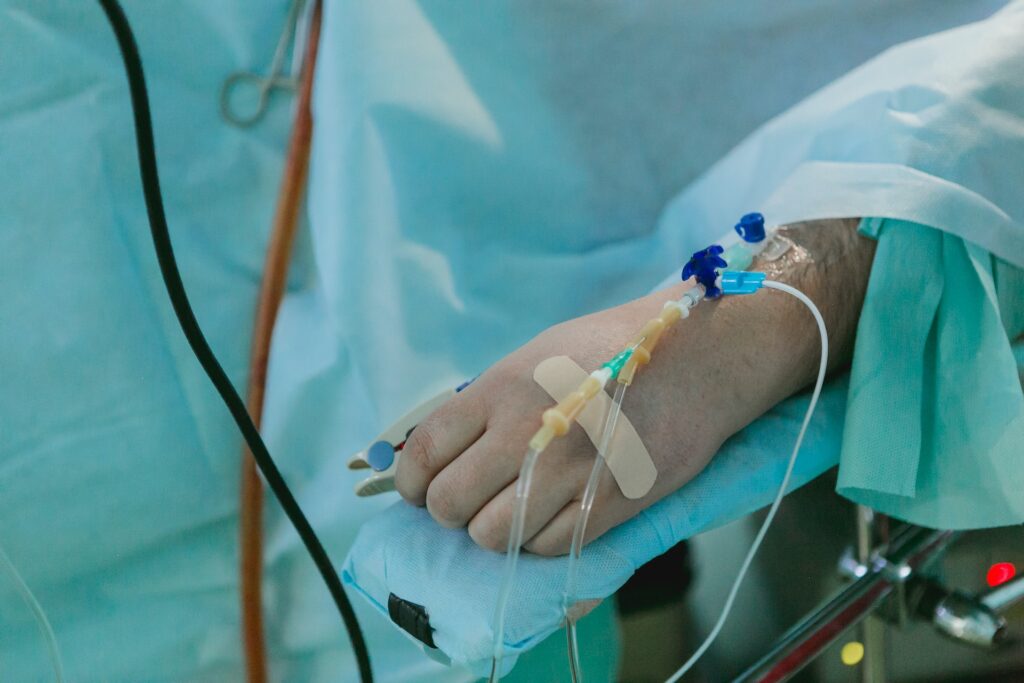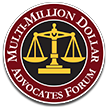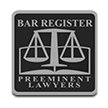Hospital Bedsores and Wrongful Death: Seeking Justice for a Loved One

Hospital Bedsores and Wrongful Death: Seeking Justice for a Loved One
Under no circumstances should a hospital patient suffer bedsores, certainly not to the degree of death. Unfortunately, it still happens. Florida personal injury law allows an avenue for surviving family members of victims to pursue financial compensation for their losses through a wrongful death claim. If you lost a loved one due to a hospital’s negligent care, a wrongful death attorney can help you understand the legal options available.
Understanding Causes and Consequences of Bedsores
Bedsores, also known as pressure ulcers, arise from prolonged pressure on the skin. They commonly affect individuals with limited mobility, particularly patients confined to hospital beds or wheelchairs. These sores occur when sustained pressure cuts off blood circulation to vulnerable areas of the body, such as the hips, heels, and tailbone. Without adequate blood flow, the affected skin and underlying tissue begin to die.
The development of bedsores involves several stages, ranging from mild to severe. In the initial stage, the skin may appear reddened and feel warm or tender. These areas can deteriorate if untreated, leading to open wounds or blisters. Advanced stages involve significant skin loss, exposing muscle or bone, and can lead to severe infections. In extreme cases, they can lead to life-threatening complications, such as sepsis, a serious infection that spreads throughout the body, or cellulitis, a deep skin infection. Additionally, bedsores often indicate broader issues in patient care, reflecting inadequate attention or neglect.
Florida Law on Hospital Negligence and Wrongful Death
Florida law recognizes the gravity of hospital negligence and its potential to result in wrongful death. In cases where a patient suffers harm due to hospital or staff negligence, they or their representatives can file for various forms of compensation. This includes economic and non-economic damages.
The Florida Wrongful Death Act specifies that only certain family members are eligible to file a civil lawsuit against the hospital responsible for the loss of their loved one. These qualified parties include:
- Children under the age of 25
- Adult children who were financially dependent on the deceased,
- The deceased’s surviving spouse
- The deceased’s parents, if the child was under 25
The law allows for the recovery of damages for lost assets based on your loved one’s work-life expectancy. However, the Act also presents certain limitations, particularly in cases involving elderly patients without a spouse, dependent relatives or children under 25. In such instances, the family can only recover costs related to medical care and funeral expenses. This restriction often makes it financially unviable to pursue a lawsuit, as litigation costs can exceed the potential recovery amount.
Legal Options for Justice in Florida
In Florida, pursuing justice for a wrongful death caused by hospital negligence involves civil litigation. The process begins with filing a lawsuit in a local civil court, where plaintiffs must prove negligence and its direct link to the death. Legal representation is often vital, as the complexity of these cases usually requires extensive evidence gathering, including medical records and expert testimonies.
Successful claims may result in compensation covering more than just your financial losses. Every case is unique, which dictates the specific legal strategies and potential outcomes, including the damages available.
Recoverable Damages From a Wrongful Death Case
Florida personal injury, or tort, law refers to your losses as compensatory damages. These include the economic and non-economic damages incurred by the victim and their family in a wrongful death case. While every case has unique circumstances, there are expected losses among many wrongful death cases.
Economic Damages
Your economic losses refer to the financial damage incurred from your loved one’s injuries and death. These can include:
- Medical expenses: Costs incurred for the deceased’s medical care due to bedsores and leading up to their death
- Lost wages: Income the deceased would have earned had they lived, including future earnings
- Funeral and burial costs: Expenses related to the deceased’s funeral services and burial or cremation
- Loss of benefits: Financial benefits like pension or retirement savings that the deceased would have contributed to their family
- Loss of inheritance: Potential inheritance the heirs might have received if the deceased person lived an average lifespan
Calculating and proving these losses is sometimes complex. However, your attorney can help you understand the damages available in your case.
Non-Economic Damages
Non-economic damages are even more challenging to identify without legal assistance. These include the mental and emotional losses associated with your loved one’s death. Common examples are:
- Pain and suffering endured by the deceased before their death
- Loss of companionship and emotional support from the surviving family members
- Emotional distress experienced by family members due to the loss
- Loss of care, guidance and nurturing that the deceased provided
- Loss of consortium for the surviving spouse, reflecting the loss of a marital relationship
You will likely need an attorney to help you identify and calculate the value of these losses to ensure the court accepts your demands for compensation.
Punitive Damages
Punitive damages are a form of compensation awarded over and above the actual damages. The purpose is not to compensate the victim’s family but to punish the wrongdoer for particularly egregious or reckless behavior and to deter similar conduct in the future.
In Florida, there must be clear and convincing evidence that the hospital staff’s actions were grossly negligent or intentional. This means the conduct is so reckless or wanton that it constitutes a conscious disregard or indifference to the life, safety or rights of the patient. The decision to award punitive damages and the amount is at the court’s discretion, but the state has a $500,000 cap on punitive damages.
The Role of Attorneys in Wrongful Death Cases
A wrongful death attorney provides legal guidance, navigates the complex procedures and builds a compelling case by investigating the incident and gathering the necessary evidence to prove fault. They represent the family’s interests, ensuring all filing adhere to legal standards and deadlines.
They also negotiate with opposing parties for fair settlements and, if necessary, represent the case in court. Hospitals notoriously have access to extensive legal resources, making it vital for wrongful death victims’ families to hire representation and level the playing field.
Moreover, attorneys help quantify damages, including the non-economic impacts, while advocating for fast and fair compensation. Their involvement is essential for families grieving the loss of a loved one and facing substantial financial burdens following that loss.
Challenges in Proving Negligence and Wrongful Death
Establishing a direct causal link between the defendant’s negligence and the death requires thorough evidence, often involving complex medical testimony. Demonstrating that the defendant breached a standard of care and that this breach directly led to death can be intricate and requires expert insights. Additionally, overcoming defense strategies that may shift blame or minimize the defendant’s responsibility adds complexity. With a legal representative, you do not face these challenges alone.
When To Seek Legal Representation for a Wrongful Death Case Involving Hospital Negligence
It is never too soon to contact a wrongful death attorney after losing a loved one to medical negligence. At Gordon & Partners, we understand the emotional and financial devastation the surviving family members face in the aftermath of this senseless tragedy. If you have questions about your right to compensation or need a legal representative to fight for your right to justice, we are here to help. Contact Gordon & Partners to schedule your free consultation today.
Free Case Evaluation
Verdicts & Settlements
Jury verdict for the wrongful death of a 63-year-old man survived by his widow.
Jury verdict for the wrongful death of a 97-year-old woman at an ALF.
Recovery for family of infant killed during bath at babysitter’s home.
Related News
- Common Signs of Nursing Home Abuse You Need to Know
- What is Nursing Home Abuse and Neglect – and How Do They Differ?
- Preventing Bedsores: How Patients and Families Can Advocate for Better Care
- Frequently Asked Questions About Bedsores Lawsuits
- Choosing the Right Bedsores Lawyer: Factors to Consider
- Statute of Limitations for Bedsores Lawsuits: Don’t Miss Your Chance for Justice




 855-722-2552
855-722-2552 – Client Reviews
– Client Reviews